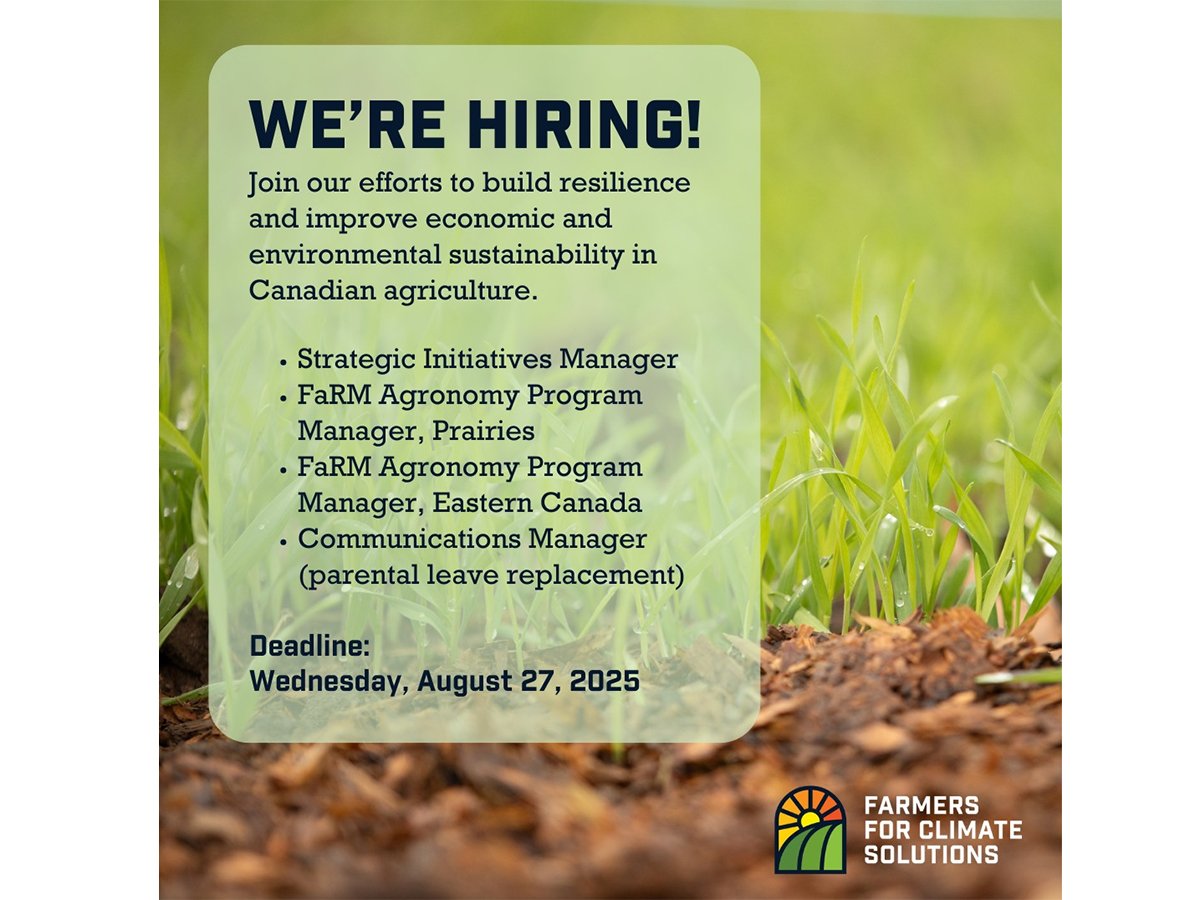Richardson International still doesn’t see value in funding the Canola Council of Canada, despite sweeping changes made at the organization.
“The value proposition, the cost of membership, (is) not in line with what we (see) as being reasonable or justified,” said Jean-Marc Ruest, Richardson’s senior vice-president of corporate affairs.
Richardson pulled its funding from the council last year because it felt the organization was duplicating the agronomy and market development work of its grain company funders and was unwilling to become more efficient by working co-operatively with other farm groups.
Read Also

Environmental farm group has Ottawa’s attention
In 2021, Farmers for Climate Solutions published a report on how Canada should reduce emissions from agriculture. Not long after, the federal government implemented most of the recommendations in the report.
The council responded by launching a priorities review led by its board of directors.
Last week, the council announced the results of that review, which include reducing its role in agronomy and market development and signing service agreements with the Flax Council of Canada and the Canadian Oilseed Processors Association.
Council president Jim Everson hopes that will be enough to coax Richardson back into the fold, but he stressed that the changes were not done to appease one company.
“What the board has come up with that serves the whole value chain does address some of the issues that Richardson had raised, and I hope they’ll look at that and I hope they’ll consider being part of our council,” he said.
“Frankly, I think there’s a gap with not having Richardson as a funder and a participant in the canola council.”
Another big change is the way the council will be funded going forward. The budget will be based on priorities and programs rather than a production-based levy.
The core budget for 2019 is $5.2 million, down from $8.7 million in 2017. Producer groups will pay half and industry the other half.
Ruest said the council has addressed some of Richardson’s concerns but not the big one.
“It is too costly in exchange for the benefit that we derive from it,” he said.
“That fundamental element has not been addressed to our satisfaction.”
Ruest also doesn’t like it that industry funding is dependent on the size of the organization.
He stressed that Richardson is not withdrawing from collaborating or participating in other aspects of the grain industry.
“It’s about setting priorities on where and how we’re going to spend our time and money,” said Ruest.
Richardson is part of the funding for the Canadian International Grains Institute and Cereals Canada and building research farms across the Prairies and an innovation centre in Winnipeg.
“Those are all things that are additive to the industry that we see a lot of value in,” he said.
The company is also investing in the Canadian Centre for Food Integrity, which is attempting to restore consumer trust in the food sector.
“That’s really an area where we see a pressing need and value in participating in those types of issues,” said Ruest.
He noted that Richardson is willing to work with the canola council on areas such as market access issues and is also willing to listen if the council makes further changes to its business model.
In the meantime, he believes the council will do just fine.
“We can’t get too fixated on whether Richardson is a member or not,” Ruest said. “Presumably the other funding members are happy with the arrangement. They obviously see value in the organization.”















